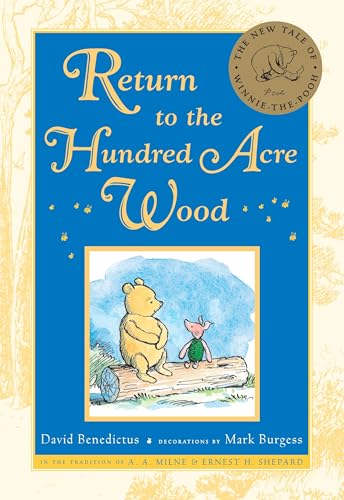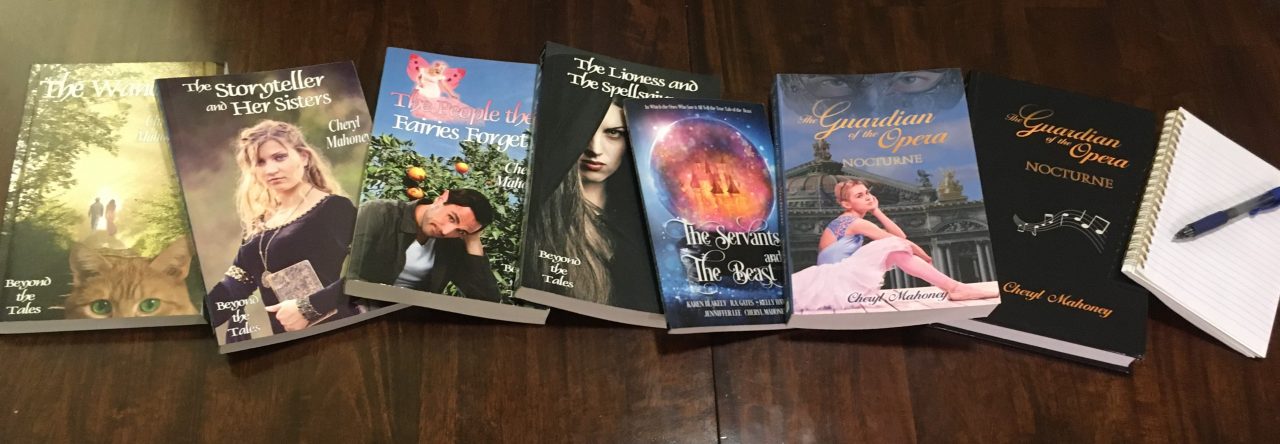 I always take a rather dim view of new authors writing sequels to classic fiction. Sometimes it works, but I’m always suspicious—so Return to the Hundred Acre Wood by David Benedictus proved to be a pleasant surprise.
I always take a rather dim view of new authors writing sequels to classic fiction. Sometimes it works, but I’m always suspicious—so Return to the Hundred Acre Wood by David Benedictus proved to be a pleasant surprise.
It might have helped a great deal that he began with an Exposition, a kind of foreword, of the author speaking to the characters about the possibility of a new story (Eeyore is sure it will all turn out wrong). The author concludes that he can really only guess and hope that he will guess right–and the characters promise faithfully to help him get it right. And this at least makes me feel that he has a good firm grasp of the size of the shoes he is attempting to fill, which makes me feel much better on the whole subject.
The story opens with a rumor going through the wood that Christopher Robin is coming back. He does—and all the familiar characters, Pooh and Piglet and so on (even Rabbit’s “friends and relations”) proceed to have a series of adventures, from a spelling bee to a cricket match to a quest for a hidden well during a drought.
The drought is just about as serious as anything gets. On the whole these are sweet, simple stories of mostly quiet adventures—as they should be. Benedictus clearly did his homework well, knowing the little details and including the right features, like an occasional Hum composed by Pooh, or a bit of whimsical philosophy that seems quite in the proper spirit of the series.
Maybe most importantly, I thought Benedictus captured the characters very well. Rambunctious Tigger, wise Owl, fussy Rabbit and dour Eeyore… My favorite may be Piglet, who’s very much aware that he is only a small animal and not sure that he’s brave, but wants so much to be noticed and appreciated. Oddly enough, if any character fades a bit, it may be Winnie the Pooh—but I think that’s only because the movies have led me to think of him as the lead, while really the original books are an ensemble cast—and so is this one.
There is one new character, an otter named Lottie, who I mostly feel neutral about. I didn’t think she added much, but she wasn’t a real problem either. She was just there, part of the ensemble, and fortunately not too big a part since I’d rather read about the others.
I have just one real objection to the book, and that’s not so much a flaw as an inconsistency with my personal understanding of the series. At the end of The House at Pooh Corner, Christopher Robin goes away, presumably to school. But the tone makes it so very, very clear that he is not coming back. Going away to school is really a metaphor for growing up, and you can’t go backwards with that. Grown-up Wendy can’t fly back to Neverland, and Christopher Robin can’t come back to the Hundred Acre Woods.
I’d rather like to pretend that Christopher Robin grew up and went on to a long and happy life, died at a ripe old age—and then, in an Aslan’s Country-style way, returned to the Hundred Acre Wood. Or at least the boy he was did. I’m sure that’s not what Benedictus had in mind, but it could actually work for most of the book…until the last chapter when Christopher Robin returns to school for the next term. Oh well.
But like I said, that isn’t really a flaw of the book—it’s just my quirk. And aside from that, this was a delightful, in-the-proper-spirit trip back to the Hundred Acre Woods.
Author’s Site: http://www.davidbenedictus.info/
Other reviews:
Discerning Reader
Becky’s Barmy Book Blog
Children Webmag
Anyone else?
Buy it here: Return to the Hundred Acre Wood

Is there an explanation given as to why a new author was writing a sequel at all? It’s not as if these stories were left with a cliff hanger ending!
I believe the estate of Milne arranged for the publication…so I would guess a combination of money and a desire for more, similar stories!
Sequels can definitely be scary things. The only other example where I loved the sequel as much as the original are William Horwood’s additions to “The Wind in the Willows” – so perfectly done! This sounds like another instance where the author has a genuine love and respect for the original, and writes as a sort of homage, rather than an attempt to steal some of the spotlight.
Ooh…I didn’t know there was a Wind in the Willows sequel. That could be lovely if done well!
I found them to be delightful, honestly, and I wasn’t expecting that. ‘The Willows in Winter’ is the first sequel, written because Horwood said he couldn’t believe that Toad was truly “an altered Toad” as the original story ends. The story is fun and the character beautifully true to the original.
I’m also not drawn to sequels in fact for a while there I had the opinion that authors should write their own stories with their own characters because it feels almost like sitting on somebody else’s coattails. But this does sound good and I’ve had my opinion turned around a bit by reading Longbourn recently which is a really excellent book.
Lynn 😀
I enjoy retellings when someone has a creative new angle or idea to bring to the original. Sequels that are in the style of the original are more dicey…and seem less likely to come off well!
…and LOVED it. Will start THE NINTH WARD next 🙂 Thanks for this review, my dear 🙂
Cheryl, I was an adult the first time I read THE COMPLETE TALES OF WINNIE the POOH—and fell in love 🙂 I’m not typically drawn to “sequel” type books by other authors either. I don’t know what to read first, to be honest, with such a long TBR! Just finished CIRCA NOW
Good luck with the TBR list! 🙂